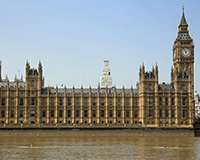With campaigns begun in earnest, guest editor Phil Briscoe profiles a dozen parliamentary candidates with property backgrounds to reveal who could be setting the real estate agenda in the next parliament
 1. Catherine West, Labour, Hornsey and Wood Green
1. Catherine West, Labour, Hornsey and Wood Green
Labour’s candidate for the Hornsey and Wood Green seat (held by the Liberal Democrats, but likely to change hands) and the former leader of Islington council.
Seen as a rising star in Labour circles and a recipient of local government think tank LGIU’s Council Leader of the Year award in 2013, Islington took the management of council homes back in-house and announced plans to build 2,000 affordable homes in the London borough by 2015.
As council leader, she pushed for the devolution of greater powers to local authorities to build and maintain their own housing stock – for example, by lifting the cap on borrowing in order to build new homes. It is likely that she will continue to argue for this in parliament.
 2. Jeff Smith, Labour, Withington
2. Jeff Smith, Labour, Withington
Jeff Smith is targeting Manchester’s Withington seat, held by the Liberal Democrats. He is the executive member for housing and regeneration at Manchester city council, having previously served as executive member for children’s services and executive member for finance.
Smith only took up the role of housing and regeneration executive member in 2014, but given the recent agreement to devolve powers to Greater Manchester, including creating a £300m housing investment fund and greater powers over strategic planning, he looks set to be a key influencer in the area should he be elected.
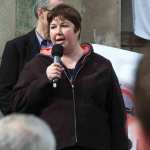 3. Louise Baldock, Labour, Stockton South
3. Louise Baldock, Labour, Stockton South
Former Liverpool city councillor and member of the Labour Party’s national executive committee, Baldock is targeting a seat held by Labour until 2010, when it was won by Conservative James Wharton with a tiny majority of 332. She was also vice-chair of Venture Housing Association for five years.
Baldock identified the changes to housing benefit set out in the coalition’s Welfare Reform Act as “the defining issue of the past 20 years” and in February 2013 set up Labour Against the Bedroom Tax – a national campaign that sought to repeal the policy.
She is likely to continue to argue for the rights of social and affordable housing tenants should she enter parliament.
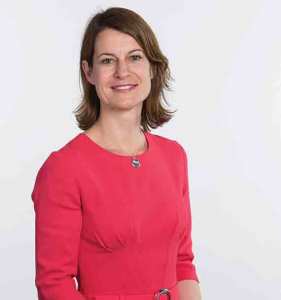 4. Helen Hayes, Labour, Dulwich and West Norwood
4. Helen Hayes, Labour, Dulwich and West Norwood
The Southwark councillor won the selection for the safe Labour seat of Dulwich and West Norwood after Tessa Jowell announced in November 2013 that she was standing down at the next election. As well as serving as a Labour councillor for the past six years, Hayes set up and ran architects firm Urban Practitioners for 14 years before joining Allies and Morrison in 2011.
During that time she was involved with a wide range of planning, urban design and masterplanning projects, including a new masterplan for Swindon town centre and a masterplan for an urban extension in Lincolnshire. A Labour win would see her become one of only a few members of parliament with a detailed understanding of planning policy and design.
 5. Sarah Jones, Labour, Croydon Central
5. Sarah Jones, Labour, Croydon Central
The Labour candidate for Croydon Central (held by the Conservatives) is a board member of Wandle Housing Association and was previously head of campaigns at housing charity Shelter. Sarah Jones has been supportive of the introduction of selective landlord licensing in Croydon which follows on from work she produced at Shelter on links between child poverty and poor housing stock.
This is her first time standing for elected office but she has experience of working closely with leading politicians through roles at the Department of Health and on London 2012. She is a leading figure in the Gatwick Airport expansion campaign, and she is a keen advocate of affordable housing and support for homeless families, which she will no doubt build on if elected.
 6. Julian Knight, Conservative, Solihull
6. Julian Knight, Conservative, Solihull
Julian Knight is fighting his coalition partners in Solihull, with polling suggesting he will defeat incumbent Liberal Democrat MP Lorely Burt and gain the seat for the Conservatives.
He has been the money and property editor at The Independent since 2007, where he has written in favour of Right to Buy and has been supportive of the coalition’s Help to Buy scheme.
Given his expertise in the housing and property sector, he is well placed to become a commanding voice and lobby the government of the day, if elected.
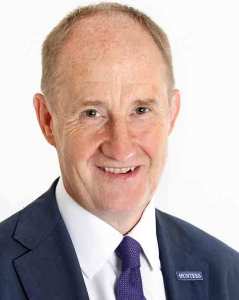 7. Kevin Hollinrake, Conservative, Thirsk and Molton
7. Kevin Hollinrake, Conservative, Thirsk and Molton
Kevin Hollinrake is standing in this safe Conservative seat after incumbent Tory MP Anne McIntosh was deselected by the local party. Polling suggests it is almost a given that the Conservatives will retain the seat.
Hollinrake has spent his entire working life in property, and set up Hunters Property Group in 1992.
In the past he has spoken out against the coalition government’s plans for capital gains tax. In October 2013, he said: “The chancellor must be aware that by introducing capital gains tax on foreign-owned properties in the UK, it may risk deterring important foreign investment into the London and the UK housing markets.”
He could be a powerful voice for the property sector if elected, using his private sector knowledge to inform debate and shape policy.
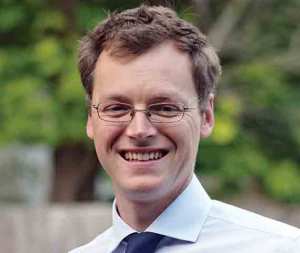 8. Michael Tomlinson, Conservative, Mid-Dorset and North Poole
8. Michael Tomlinson, Conservative, Mid-Dorset and North Poole
Michael Tomlinson is standing against Liberal Democrat MP Annette Brooke in Mid-Dorset and North Poole.
A barrister by trade, he specialises in housing and property-related work, for which he is well respected. He has worked with local authorities, social landlords and private individuals on a range of cases, from straightforward possession hearings and applications
for forfeiture to succession claims.
 9. Maria Caulfield, Conservative, Lewes
9. Maria Caulfield, Conservative, Lewes
The decline in the Liberal Democrat vote across the country suggests that this seat could well be a Conservative gain. Given that the incumbent Norman Baker was a Home Office minister until 2014, there could also be a sizeable backlash against him as a former member of the government.
Caulfield is a former Brighton and Hove councillor and cabinet member for housing, where she introduced a policy to give preference on the housing waiting list to people in work. She also changed the “local connection” policy period from six months to two years.
During the election campaign she has said she wants to keep the rural essence of Lewes and will campaign against inappropriate green belt developments that do not have the necessary infrastructure to support them.
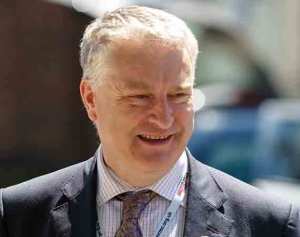 10. Gerald Vernon-Jackson, Liberal Democrats, Portsmouth South
10. Gerald Vernon-Jackson, Liberal Democrats, Portsmouth South
Gerald Vernon-Jackson was leader of Portsmouth city council for 10 years, from 2004 until the Liberal Democrats lost control after a 2014 by-election.
Over this 10-year stint he championed affordable housing and set up a scheme that saw the first council housing being built in the city in a generation. On the campaign trail he said: “It is so important that new housing in Portsmouth is sustainable and that a sensible proportion of any new development is affordable housing, so that there are homes for local families to buy and live in.”
 11. Dorothy Thornhill, Liberal Democrats, Watford
11. Dorothy Thornhill, Liberal Democrats, Watford
Dorothy Thornhill, who has served as the elected mayor of Watford since 2002 and as a local councillor since 1992, is hoping to unseat incumbent Conservative MP Richard Harrington.
She is already well-known and influential locally and, while polls suggest the seat is a three-way marginal between the Conservatives, Labour and Liberal Democrats, given her local profile, this could be one of the few seats in the country that translates into a Liberal Democrat gain.
Thornhill has put an emphasis on developing brownfield sites and has argued for larger developments so “we can get the correct infrastructure needed to make sustainable communities”.
 12. Nigel Farage, UKIP, Thanet South
12. Nigel Farage, UKIP, Thanet South
Despite UKIP’s national profile, it will probably pick up only a few seats. South Thanet in Kent is expected to be a gain, helped by Farage’s personal profile.
As party leader, should he enter parliament he will define UKIP’s housing policy, which could then affect the thinking of the larger parties.
In March 2015, he said his party’s “tighter immigration controls would reduce housing demand” and that UKIP would build “a couple of hundred thousand” homes every year on brownfield land. He has actively campaigned for the protection of the green belt and believes “building on brownfield and turning bad into good is better than turning good into concrete”.







